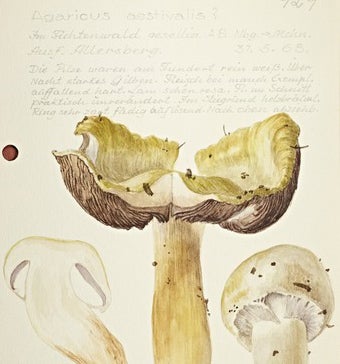An initiative to learn how plants have shaped human societies
Plants offer remarkable opportunities for interdisciplinary research, and Dumbarton Oaks and JSTOR are collaborating to launch the Plant Humanities Initiative to foster this work through scholarly programming, the exploration of primary sources, and digital publication via a new scholarly research tool.
Head to the Scientific American blog to learn more about the initiative. There, Yota Batsaki, executive director of Dumbarton Oaks, and Alex Humphreys, director of JSTOR Labs and associate vice president of JSTOR, explore how to confront the considerable… Read more»
 We are continuing to make progress on the development of a new collection inspired by
We are continuing to make progress on the development of a new collection inspired by 